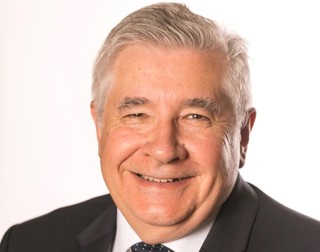There has been no research done on this subject that I could draw on and asking people appeared to produce comments that either reflected Scottish pride or scorn from those operating south of the border. I dismissed the claim of one Englishman that there was “little else to do up there so they might as well spend their time entering”.
The geography of Scotland probably has an impact, with centres of population apart from Edinburgh and Glasgow being quite dispersed. This could lead to heightened competition and increased standards, but this cannot be the full story.
Scotland has many strong business leaders
It also has to be acknowledged that there are some strong business leaders in Scotland – Eddie Hawthorne, Andy Grzesinski and Peter Vardy, for example. These are leaders who have shaped the thinking and values of their organisations. The problem is, I can think of many equally talented people in England and Wales.
Eventually I decided to go back to the AM Awards entry forms and re-read the entries. There appeared to be one common strand that underpinned the Scots’ success. There was a willingness to take risks and try alternative approaches, coupled with a desire and rigour in making sure the initiatives were implemented correctly. The desire to innovate and change appeared in all of the businesses that were examined.
At the AM Awards Dinner, John McGuire of Phoenix Car Company (a previous AM Awards winner from Scotland) told me his company was launching a John Lewis-style partnership scheme, with all of the partners sharing equally in the profits of the company. Although not original, this again was a Scottish dealership group trying something different to improve the running of the business.
The scheme had only recently started but I asked Debbie Hubner, Phoenix’s new sales director, what she thought of it. Her reply was interesting. She said a technician had inadvertently left a light on overnight and when he turned up the next morning he was given a frosty reception from the rest of the staff, who complained that he was eating into their profits. Creating a self-regulating team environment that focuses on reducing costs and improving profitability seems like something most people would strive to achieve.
Maybe the desire for Scottish independence is based more on the independent thinking that seems to be generated by the Scots’ culture and has led to the nation producing great scientists, explorers, engineers, writers and business people (possibly not bankers.)
This independence of thinking appears to have reached a wide spectrum of Scottish life, including their curling teams, but much to the pleasure of those in England appears to have bypassed Scottish rugby and football.


















David MacFarlane - 04/04/2014 14:05
Och aye!